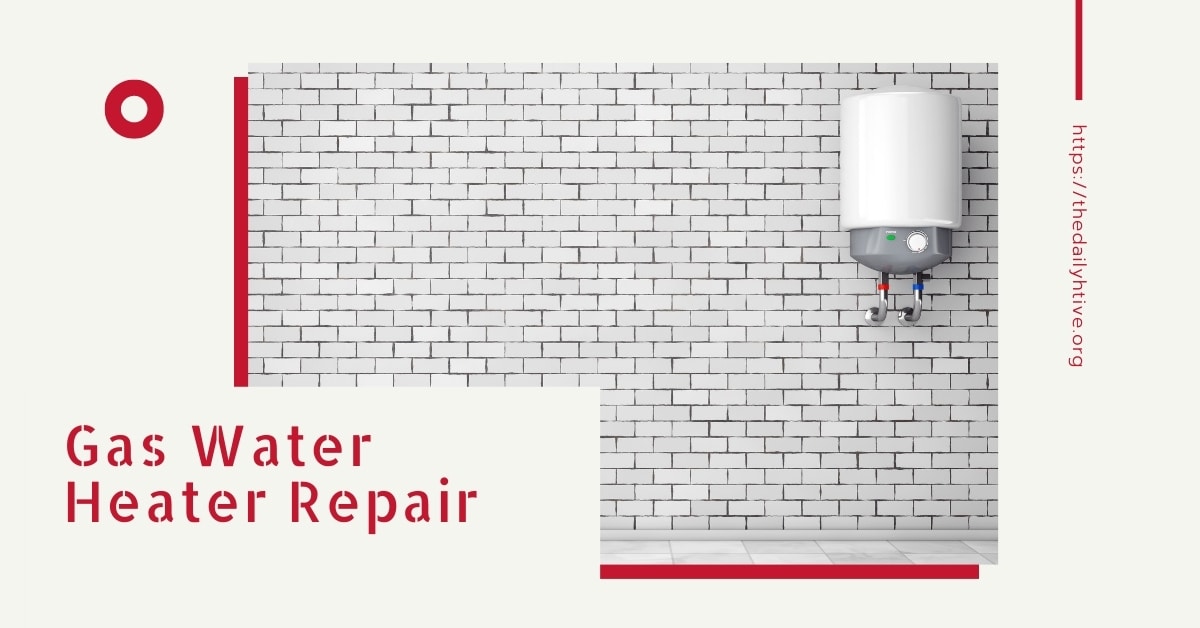Does your gas water heater need repair? Is it failing to produce enough hot water, not producing any hot water, or perhaps supplying water that is either too hot or not hot enough?
If you’re experiencing any of the problems described below, we take a look at some of the more common faults occurring with gas water heaters and some possible repair tips.
Troubleshooting and repairing gas water heaters are inherently more difficult than a standard electric water heater. However, below we list some of the more common problems and potential causes, which should point you in the right direction to repair your gas water heater.
Troubleshooting Preparation
Before undertaking any kind of water heater troubleshooting, make sure the power supply to your water tank is turned to the “off” position.
Also, turn the gas valve to the pilot setting and shut off the water supply to the tank. This will eliminate the most obvious dangers when repairing gas water heaters, making the process of troubleshooting a lot safer.
Common Gas Water Heaters Problems
Here are 6 common gas water heater problems, and some tips for what to do about them.
- Insufficient hot water supply.
- No Hot Water.
- Water is too hot.
- Pilot will not light.
- Pilot will not stay on.
- Leaking water heater.
Let’s now take a closer look at these problems individually.
1. Insufficient Hot Water Supply
The causes of insufficient hot water supply to your home could be due to a variety of reasons:
Defective thermostat
Rarely is the thermostat a problem component in a gas water heater. They tend to be quite reliable and rarely need any kind of service. The thermostat is part of the gas valve, which we discuss below, and its job is simply to turn the temperature up or down.
Do You Have The Correct Temperature Setting?
The biggest issue for water heaters producing insufficient hot water is setting the thermostat to the right temperature. The factory setting for most gas water heaters is 120 degrees, and it is not advisable to have a temperature setting above this.
Check the owner’s manual for recommendations on optimal temperature settings for your particular water heater.
So What is the Correct Temperature Setting?
Under normal circumstances, a temperature setting of 105 to 110 degrees should be more than sufficient for heating water in the home. If you have children or other vulnerable adults in the home, care should be taken not to set the temperature too high as to cause a scalding injury.
Suppose you find that setting the thermostat to the recommended settings above does not heat the water sufficiently. In that case, this may indicate a problem in your gas water heater.
Changing the temperature setting is relatively simple to do. Locate the dial on the front of the gas valve. Simply turn the dial towards a hotter or higher temperature to increase the temperature of the water.
What about the Tank size?
If your hot water is not meeting all the needs in your household, the problem might simply be that you need a bigger tank. The size of tank you need depends on the number of people you have living in the home using the hot water and any other hot water demands you place on it, such as the regular use of a whirlpool.
Poor Ventilation
Gas water heaters need air to operate optimally. Poor ventilation of your water heater will cause water heaters to burn inefficiently, not to mention cause a possible backdraft of dangerous carbon monoxide back into the home.
This is why it’s recommended that you have a carbon monoxide sensor in your home if you operate a gas water heater.
Broken Dip Tube
The dip tube is the plastic tube that pushes cold water to the bottom of the tank.
A defective dip tube is common gas water heater repair on old unit. If it is not working correctly, your water heater could be mixing cold water with the hot, causing the water to be lukewarm.
Unfortunately, there is no simple fix if your dip tube is broken. There is as much work involved in replacing a broken dip tube as replacing the water heater with a newer model.
Faulty Gas Valve
The gas valve regulates the gas to the pilot light and the main gas burner. It has a host of safety features built-in, such as a sensor called a thermocouple to tell the gas valve when to allow gas to the burner.
If this sensor stops working, gas will stop being fed to the gas burner, resulting in no hot water.
Gas Valves are relatively expensive to replace and require a fair amount of work to remove and then re-install.
Depending on the age of your water tank and the approximate lifespan of your particular heater, you may want to speak with a certified technician on whether it is more economical to replace your water heater than to undertake expensive repairs.
2. No Hot Water
If you have no hot running water supply to your home, the 3 most common causes are faulty gas pilot, thermostat, or gas valve.
Check if the pilot light is still on. Pilot lights are the most common cause of no hot water. If the pilot appears to be working correctly, the next check is to look at the gas pilot valve. See above for a further explanation of the gas pilot valve.
3. Water Too Hot
If your water heater is running water that is too hot, the main cause is often the thermostat not being set to the correct temperature. Refer to the above section, “Defective Thermostats.”
4. Gas Water Heater Pilot Will Not Light
If you have trouble lighting the pilot light on a gas water heater, the problem could lie with the thermocouple.
The thermocouple is the sensor on the gas valve that switches off the gas when the pilot light is not on. So, if the pilot is lit, the gas valve will sense this via the thermocouple.
If the thermocouple is defective, it will send a false reading to shut the gas off, which means the burner will not light, and the pilot will go out. As a result, your gas water heater needs repair.
5. Pilot Will Not Stay On
As with our gas water heater troubleshooting explanation for the pilot will not light, the possible causes for a pilot that will not stay on are the water heater thermocouple, defective water heater valve, or possibly poor or blocked ventilation of your water heater.
6. Leaking Tank
For a leaking gas water heater, we have discussed here in another post: Water Heater Leaking.
As you can see, many quite complex issues may result in a lack of or no hot water being produced by a gas water heater.
A water heater is one of the most important appliances in your home, and just like any other appliance, problems can come up. The best action is identify the problem early and take troubleshooting steps to fix it. If your Gas Water Heater need repairs, Call a licensed and trained technician for help.






